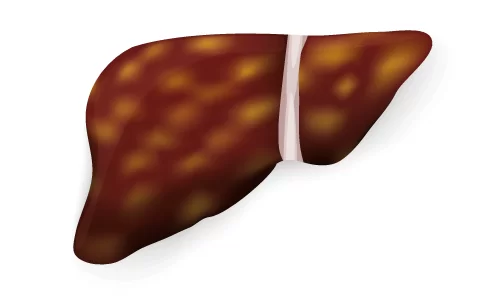
Your Lifestyle, Your Liver Health
Mar 24, 2020
What is Your Lifestyle?
Let’s calculate, in a day, how much time do you spend on sedentary activity (e.g., sitting, lying down), eating, and exercise? Based on Malaysian Dietary Guideline 2010, the recommended amount of physical activity for adults is at least 30 minutes on most days of the week.1 No doubt, most of us spend more hours being sedentary and less time on energy expenditure activities. This inactive lifestyle will eventually take a toll on our health and reflects on the readings in our health report.
Inactive Lifestyle – Too Much Cholesterol, Burdening Your Liver
The increasing prevalence of hyperlipidemia, or more commonly known as high cholesterol, has become a public health issue where it affects almost half of the Malaysian population.2 Hyperlipidemia has no signs or symptoms; therefore, many may be unaware of it until they are screened for a cholesterol test. The same goes to fatty liver; it is a “silent disease”. 2
Hyperlipidemia stems from a variety of factors, which includes:

1. Excessive calorie intake, particularly saturated and trans-fats in your diet. 80% of your cholesterol in blood originates from the liver and only 20% comes from dietary cholesterol intake. Compared to dietary cholesterol, saturated fats show a more dramatic effect in increasing LDL-cholesterol production in the liver.3 Food that is high in saturated fats includes red meat, animal skins, gravy, fried food, fast food, and not forgetting some of our popular local delicacies such as nasi lemak, roti canai, char kuey teow etc. Very often, people don’t pay attention to how much calories and fats they consume daily, especially if they frequently eat out. Those excess fats consumed will be stored in the liver and burdening the liver, leading to a rise in LDL cholesterol in the body.

2. Unhealthy lifestyle such as staying up late, alcohol consumption, cigarette smoking, etc. These unhealthy lifestyle habits increase free radicals in the body, which can aggravate damage within the liver cells by inducing oxidative stress.

3. Physical inactivity. If you are not active enough, you do not use the energy provided by the food you eat, and the extra energy you consumed will be stored by the body as fats. Being overweight tends to increase cholesterol level and your risk of fatty liver.4
What happens when there’s too much cholesterol circulating in your body?

Besides slowing down or blocking the normal blood flow, the cholesterol will eventually accumulate around the largest internal organ, the liver. A thick layer of fat surrounding the liver resulting in a condition called fatty liver. In the early stage, the liver’s functions become sluggish, even though you may not notice any obvious signs or symptoms. Sooner or later, these fats get oxidized and may lead to liver inflammation, further damaging the liver cells.5 One of the main functions of the liver is to break down fats and cholesterol. When the liver is not functioning normally, it may result in excessive cholesterol build-up in the liver. If necessary care is continuously neglected, the condition may progress to more severe liver issues.
Natural Nutrients Needed to Get Healthy Liver
The average age of those with hyperlipidemia and fatty liver health issue are getting younger nowadays, mainly attributed by unhealthy daily lifestyle.6 Therefore, we need to take prompt action in protecting our liver health before its too late. Some simple measures include
- Making healthier food choices
- Increasing physical activity
- Weight loss for those overweight/ obese
- Reducing alcohol intake and smoking
- Supplement with nutrients that can help in supporting liver health
One of the popular herbal remedy known for supporting liver function is milk thistle extract. The active component in milk thistle—silybin, contains high antioxidant and anti-inflammatory properties that help in protecting liver cells against oxidative stress damage stems from unhealthy lifestyle habits. At the same time, it also possesses detoxification function that helps to excrete accumulated toxins in the body. Another herb that also possesses detoxification effect is dandelion root. Dandelion also enhances fat digestion by increasing bile release in the liver.7,8,9
Currently, there is no specific medical treatment for fatty liver. However, various health nutrients have been applied to reverse the poor liver health. One of these is known as the Essential Phospholipids (EPL), an ingredient extracted from soy. The EPL serves as a fundamental building block for liver, target to help in repairing and regenerating healthy liver cells. Also, with the addition of vitamin B group, the metabolism process of the liver can be elevated. Hence, detoxification and excess fat elimination also get boosted. Besides enhancing and supporting liver functions, it is also essential to protect the liver from continuous damage by oxidized fat. Therefore, usage of antioxidant nutrient such as Vitamin E, able to help protect the liver through its antioxidant and anti-inflammatory benefits.
Take Good Care of Your Silent Organ
There is a clinical reason why liver is known as the silent organ. It doesn’t show any noticeable symptoms and continue to work until most of its functions have declined, which then could be too late to treat. However, you can still take note on certain signs that may indicate poor liver health:
- Easily get tired or exhausted
- A sudden increase in skin problems (e.g., sensitivity, allergy, easy bruising)
- Poor sleep quality
- Easily fall sick, feel weak
Never procrastinate in taking care of your health. Start by gradually adapting to a healthy lifestyle and take natural alternatives to boost your health.
BiO-LiFE Liver Range Products
- Livasil – High strenth milk thistle
- Milk Thistle and Dandelion – 2-in-1 formula
- Livolin Forte – Triple Action Formula (Essential Phospholipids + Vitamin B Complex + Vitamin E)
Never procrastinate in taking care of your health. Start by gradually adapting to a healthy lifestyle and take natural alternatives to boost your health.
References
- Malaysian Dietary Guideline (MDG) 2010.
- Ministry of Health, Malaysia. National Health & Morbidity Survey 2015. Non-Communicable Diseases, Risk Factors & Other Health Problems. Volume II.
- de Souza R, Mente A, Maroleanu A, Cozma A, Ha V, Kishibe T et al. Intake of saturated and trans unsaturated fatty acids and risk of all cause mortality, cardiovascular disease, and type 2 diabetes: systematic review and meta-analysis of observational studies. BMJ. 2015;351:h3978.
- High Blood Cholesterol What you need to know. National Heart, Lung, and Blood Institute. 2005 Available from: https://www.nhlbi.nih.gov/files/docs/public/heart/wyntk.pdf
- Püschel G, Henkel J. Dietary cholesterol does not break your heart but kills your liver. Porto Biomedical Journal. 2018;3(1):e12.
- Badarudin N. Big deadly problem. NST Online. 2016. Available from: https://www.nst.com.my/news/2016/09/171178/big-deadly-problem
- Vogel G. 1977. Natural substances with effects on the liver. In: Wagner H, Wolff P, eds. New Natural Products and Plant Drugs with Pharmacological, Biological or Therapeutic Activity. Heidelberg: Springer-Verlag.
- Bohm K. 1959. Choleretic action of some medicinal plants. Arzneimittel-Forschung, 9:376-378.
- Racz-Kotilla E, Racz G, Solomon A. The action of Taraxacum officinale extracts on the body weight and diuresis of laboratory animals. Planta Med 1974;26:212-217.



